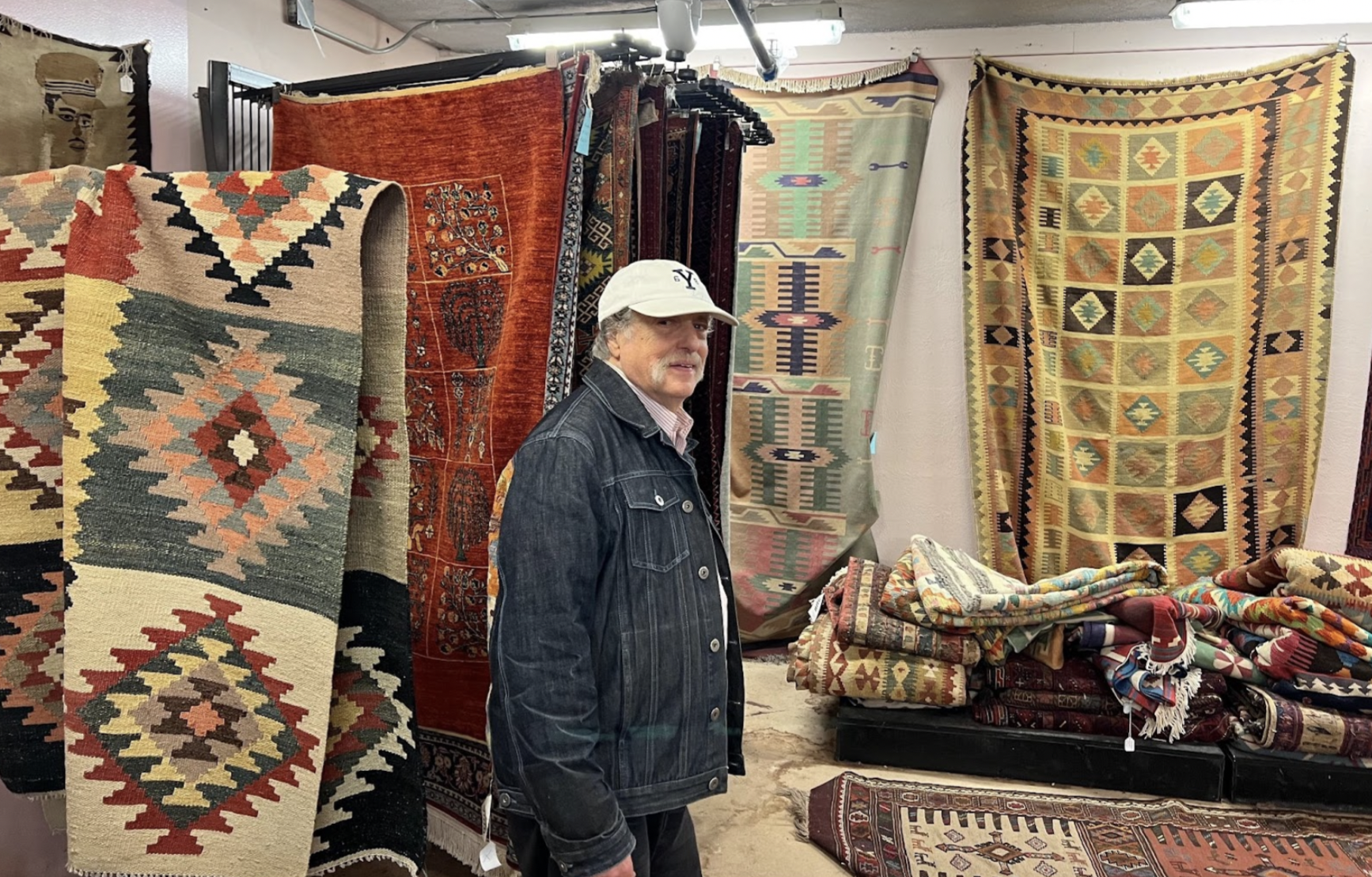Steven Rosenthal (Turkey) | Yale Graduate Sells Rugs in New Haven
Rosenthal graduated the year before Yale became co-educational. He said that in many ways, Yale is less exclusionary than it was when he was a student. He reflected that, in his opinion, the recent change has been for the better.
“Yale has always been very good to me,” he said.
When he wanted to learn Ottoman Turkish — a combination of Turkish, Arabic and Persian — for purposes of his archival research, and Yale didn’t offer any courses in the language, Yale paid for him to go to the School of Oriental Studies in London to learn it.
His passion for Middle Eastern studies has only grown since his college years. Rosenthal is a tenured professor and chairman of the history department at the University of Hartford, where he teaches Middle Eastern history. The Kilim Company operates on a loose schedule, with the store hours revolving around Rosenthal’s teaching hours. He considers his rug business a passionate hobby, not a main source of income.
As both a professor and a rug connoisseur, he writes about Middle Eastern history and takes part in the society, as well. The way he puts these cultural engagements in conversation affords him an interesting outlook.
He has spent a lot of time in Turkey, volunteering in the Peace Corps there and routinely visiting during summer and winter breaks for forty years. He would buy most of his rugs from the grand bazaar in the week between Christmas and New Year’s — the week before Turkish taxes were due.
He became very good at bargaining with rug dealers; when they would negotiate at markets, dealers often had their cost prices in Ottoman Turkish, expecting Americans would not understand. Since Rosenthal had learned the language, he earned an advantage in bargaining.
In addition to purchases at bazaars, Rosenthal would often travel by bus to villages in the countryside of Turkey, where he would be greeted with hospitality and excitement.
“But, it would be sort of embarrassing,” Rosenthal told me. “Because at times, they would sacrifice a sheep in my honor.”
Rosenthal said that now, he imagines the scene looks very different, but when he would visit Ankara, the capital of Turkey, fifty years ago, he found cows traversing the streets. Since then, Turkey has undergone a major transformation in wealth.
The rug business, he said, has moved East during his time in the trade: from India to Pakistan, China and Afghanistan. Because of the tense political climate in these places, his acquisitions of the past five years have been through other buyers.
His expertise is on kilims and pile carpets. Kilims, which are flat-woven rugs, were pioneered by peasants and nomads for their own use. Pile carpets have more of a height, and include knots along with warps and wefts. They have always primarily been created for the market.
In Islamic culture, Rosenthal pointed out a lack of distinction between fine and practical art. He showed me a salt-bag and a piece of luggage — practical in nature but designed like fine compositions, illustrating lush scenes and patterns.
“They are so human,” Rosenthal said about rugs.
He said that, though the phrase “every rug has a story” is a cliché among rug dealers, many rugs do.

No comments yet.
Add your comment